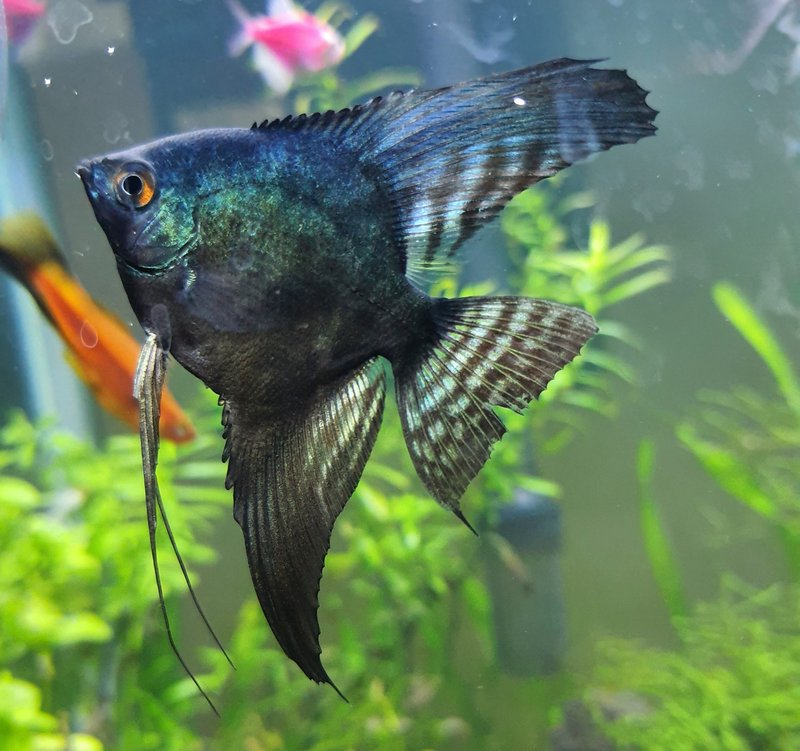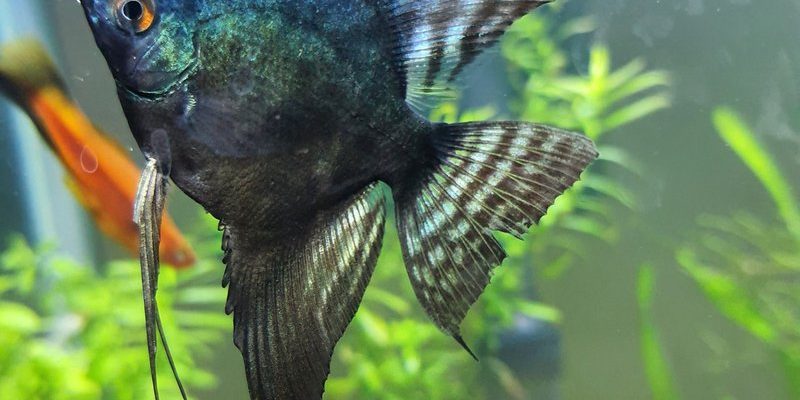
Angelfish are not just beautiful; they’re fascinating creatures that bring a touch of calm to any setting. Imagine watching them glide through the water, their graceful movements creating a dance-like rhythm. But just like every fish in a tank, they have their own lifespan to consider. Let’s dive into the life expectancy of angelfish, especially when kept in captivity, and what you can do to help ensure they thrive for as long as possible.
Understanding Angelfish Lifespan
To get to the heart of the matter, angelfish typically live between 10 to 15 years in captivity, depending on several factors. This range can vary significantly based on water conditions, diet, and overall care. You might be surprised to know that in the wild, their lifespan can be shorter due to predators and environmental stresses.
So, why is it that captivity offers a longer life? Well, think of it like how humans live longer when they have access to healthcare and a stable environment. In a well-maintained aquarium, angelfish can thrive without external threats, allowing them to reach their full lifespan potential.
Factors Influencing Lifespan
Several key factors play a role in determining how long your angelfish will live. Here are some of the main ones:
- Water Quality: Keeping the water clean and properly filtered is crucial. High levels of toxins like ammonia or nitrites can stress fish and shorten their lifespan.
- Diet: A balanced diet is vital. Feed them a variety of high-quality foods, including flakes, pellets, and occasional live or frozen treats.
- Tank Size: Angelfish need room to swim and establish territories. A larger tank (at least 20 gallons) can help minimize stress and competition.
- Tank Mates: Choosing compatible tank mates is essential. Aggressive fish can lead to stress and injury, impacting overall health.
By addressing these areas, you’re setting up a solid foundation for your angelfish’s long and healthy life.
Signs of Stress in Angelfish
It’s essential to recognize when your angelfish might be feeling stressed or unwell. They might not come up to the front of the tank as eagerly, or they could hide more than usual. Here are some signs to watch for:
- Faded Colors: Healthy angelfish are vibrant. If you notice their colors dulling, it could indicate stress or poor health.
- Erratic Swimming: If they’re swimming frantically or staying at the bottom without moving much, something might be off.
- Loss of Appetite: If your angelfish suddenly stop eating, that’s a red flag. Healthy fish typically have a hearty appetite.
If you catch these signs early, you can take measures to improve their environment and care, which might help them live for a long time.
Optimal Tank Conditions for Longevity
Creating the right environment is key to maximizing your angelfish’s lifespan. Here’s what you need to focus on:
1. Water Temperature: Angelfish thrive in warmer waters, ideally between 76°F to 82°F. Keeping the temperature stable is crucial, as swings can stress them out.
2. pH Level: Aim for a pH level between 6.5 and 7.5. Regular testing ensures your tank’s chemistry remains suitable for your fish.
3. Filtration: A good filter is essential! It helps remove harmful substances, making sure your fish have clean water to swim in.
4. Regular Maintenance: Regular water changes, at least 10-15% weekly, will help keep your tank balanced. It might seem like a chore, but it’s essential for a healthy environment.
By following these steps and monitoring the conditions closely, you can create a happy home for your angelfish, which might just help them live well into their teenage years—an impressive feat for a fish!
Feeding Your Angelfish Right
A well-rounded diet is one of the most significant factors in keeping your angelfish healthy and happy. Here’s what you need to consider:
– Quality Food: Invest in high-quality fish flakes or pellets specifically designed for angelfish. Look for products that contain protein, vitamins, and minerals.
– Variety is Key: Don’t just stick to flakes! Occasionally, you can offer frozen or freeze-dried foods like brine shrimp and bloodworms.
– Feeding Schedule: Feed them small amounts a couple of times a day. Overfeeding can lead to poor water quality, which is detrimental to your fish’s health.
– Watch their Weight: Just like us, angelfish can become overweight if not monitored. Make sure they’re not becoming lethargic or having trouble swimming.
By maintaining a balanced diet, you set the stage for your angelfish to live a longer, healthier life.
Common Health Issues and Prevention
Just like any pet, angelfish can face their share of health problems throughout their lives. Here are a few common issues and how to prevent them:
- Ich (White Spot Disease): This is a common parasitic infection. To prevent it, ensure your tank is clean and avoid introducing new fish without quarantine.
- Fin Rot: This often results from poor water quality. Regular maintenance and clean water can help prevent this nasty condition from taking hold.
- Swim Bladder Disease: Often caused by overfeeding or poor diet, watch your fish for floating or sinking difficulties. Adjust their diet to avoid this issue.
Regular check-ups and being observant can go a long way in catching problems early, helping your angelfish live a longer, happy life.
So, how long do angelfish live? With the right care, they can thrive for 10 to 15 years. Just remember, it’s all about creating a stable environment—clean water, a balanced diet, and keeping an eye on their well-being.
Your angelfish can bring vibrant beauty and serenity to your home for many years if you pay attention and provide their needs. By understanding their lifestyle and requirements, you’re not just a fish keeper; you’re a responsible angelfish guardian ready to enhance their underwater journey!

